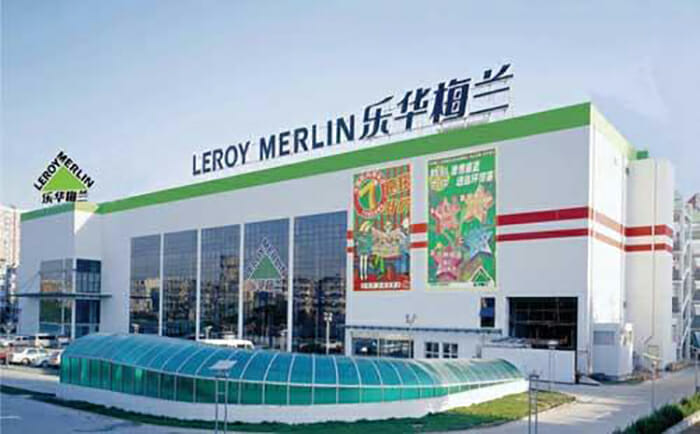
Leroy Merlin had managed to open three stores in China
Singapore’s StorHub has acquired a building which formerly housed retailer Leroy Merlin’s Beijing flagship store as the Warburg Pincus-backed self-storage operator continues to expand its presence in mainland China.
The deal will add a third Beijing location and the 17th on the mainland for Storhub, which has also been ramping up its portfolio in Hong Kong.
“We will use this property for the operation of our own mini storage services. We aim to provide safe and convenient self-storage services to residents in Beijing,” a spokesperson from StorHub China told Mingtiandi. A new StorHub facility at the location is expected to be opened during next year, added the StorHub spokesperson.
Leroy Merlin decided to dispose of the property in Fengtai district, which had housed its first flagship store in China since 2004, as the French home improvement retailer owned by the Mulliez family has adjusted its global business strategy, according to a press release by CBRE, which brokered the deal. Financial terms of the transaction were not disclosed.
Mall Makeover
Storhub’s Beijing pickup is the Leroy Merlin portion of a 50,000-square-metre (538,200-square-foot) shopping mall located near the intersection of the West Fourth Ring South Road and Kexing Road in the southwest of Beijing’s downtown area. Public information for the Leroy Merlin store, referred to as the Kexing Branch, shows that it takes up part of the first floor of the three-storey mall and has a total retail area of 9,000 square metres (96,875 square feet).

Storhub’s Mike Hagbeck
Taking up the majority of the remaining space of the mall, which is about 13 minutes’ walk from the Keyi Road metro station, is an Auchan supermarket. The Chinese division of the French supermarket chain was also owned by the Mulliez family until it was sold to Jack Ma’s Alibaba Group in 2020.
Leroy Merlin entered the Chinese market in 2003, with Matthieu Phanthala, the then chief executive of Leroy Merlin China, saying in an interview in 2010 that the French do-it-yourself giant planned to open 1,000 branches in the country. However, the chain struggled to adapt to the local market and faced fierce competition from domestic rivals. With the company facing the prolonged consequences of the pandemic in China, Leroy Merlin announced last year that it was exiting the country, at which time it only had three China branches all of which were in Beijing.
China Pipeline
StorHub, which Warburg-Pincus acquired from CapitaLand in early 2019, has been expanding its footprint in China at the same time that retailers have been suffering.
Storhub set up its first branch in Shanghai in 2012, and now has 14 self-storage facilities in operation in mainland China, including one facility in Beijing, nine in Shanghai, and four in Shenzhen. It also has two more facilities in the pipeline – one each in Shenzhen and Beijing – besides the Leroy Merlin store.
CBRE said it took an innovative approach to find a new owner for the retail property.
“Since the outbreak of the pandemic, the office and retail real estate markets have faced enormous challenges. Investors have become more and more cautious amid the complex domestic and international environments,” said Ji Gang, executive director of investment and capital markets at CBRE China. “Finding growth enterprises in the new economic environment is crucial to making a deal.”
Still in an early adoption stage, China’s mini-storage businesses mainly serve customers’ sporadic storage needs while their peers in western countries have longer-term and fixed customers, said a report by iiMedia Research. The Chinese research firm expects the market to expand gradually as more Chinese people choose to rent instead of buying a house.
The research firm’s 2020 survey found that about 75 percent of China’s mini-storage users in China are located in the top- and second-tier cities and almost half of the users choose small storage spaces between 0.1 cubic metre (3.5 cubic foot) to 0.5 cubic metre.
Leave a Reply